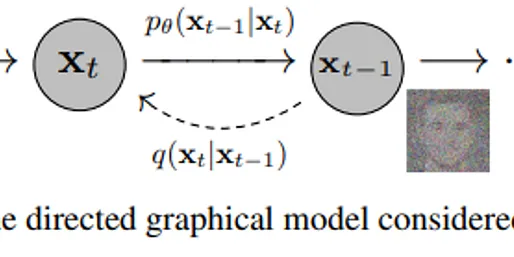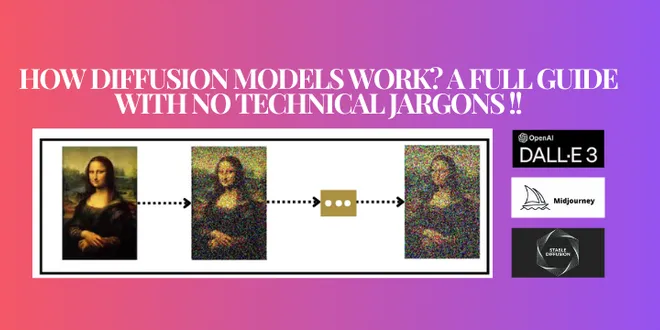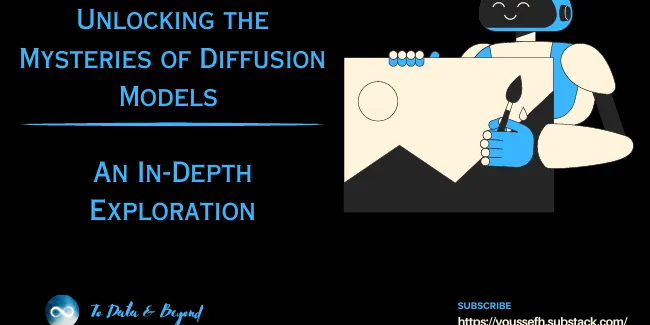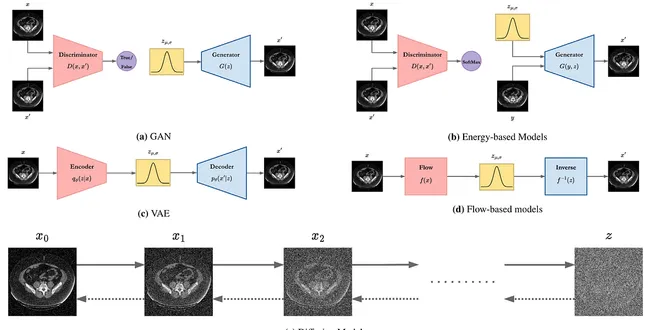Diffusion models

Diffusion models
What are they, how do they work, and why now? Source: generated from StableDiffusion… because of course I had to do that. This post is meant to help you derive and understand diffusion models. If you...
📚 Read more at Towards Data Science🔎 Find similar documents

Diffusion Models: How do They Diffuse?
Understanding the Core Processes Behind Generative AI Continue reading on Towards Data Science
📚 Read more at Towards Data Science🔎 Find similar documents

Diffusion Models Made Easy
Understanding the Basics of Denoising Diffusion Probabilistic Models Figure 1: Process of Denoising Diffusion Probabilistic Model (Image by author) 1. Introduction In the recent past, I have talked a...
📚 Read more at Towards Data Science🔎 Find similar documents

Diffusion Models — my “second?” artist.
Diffusion Models — my “second?” artist. Diffusion Models are one of the most popular algorithms in Deep Learning. It is widely used in many applications, such as image generation, object detection, a...
📚 Read more at Towards AI🔎 Find similar documents

Diffusion Models from Scratch
Diffusion Models From Scratch AI generated image Remember when AI-generated images looked like abstract art someone made after three espressos? You’d type “astronaut riding a horse,” and get back som...
📚 Read more at Towards AI🔎 Find similar documents

🧪🧪 Edge#221: What are Diffusion Models
In this issue: we explain what Diffusion Models are; we discuss Imagen, Google’s massive diffusion model for photorealistic text-to-image generation; we explore MindsEye, which allows you to run multi...
📚 Read more at TheSequence🔎 Find similar documents

Diffusion Model from Scratch in Pytorch
Implementation of Denoising Diffusion Probabilistic Models (DDPM) DDPM Example on MNIST — Image by the Author Introduction A diffusion model in general terms is a type of generative deep learning mod...
📚 Read more at Towards Data Science🔎 Find similar documents

Deploy Diffusion Models on Lambdas
Introduction Diffusion models have taken the world by storm! The shear delight inherent in a prediction is rarely found in other models in this space. I’ve never felt as happy with predicting the numb...
📚 Read more at Level Up Coding🔎 Find similar documents

How Do Diffusion Models Work? Simple Explanation: No Mathematical Jargon, Promised!
Background Knowledge Essentially, there are 3 common types of generative models: Generative Adversarial Networks (GANs), Variational Autoencoder, and Flow-based models. Although they have proven thei...
📚 Read more at Towards AI🔎 Find similar documents

Unlocking the Mysteries of Diffusion Models: An In-Depth Exploration
Table of Contents: The Intuition Behind Diffusion Models Sampling Technique Neural Network Diffusion Model Training Controlling the Diffusion Model Output Speeding Up the Sampling Process 1. The intui...
📚 Read more at Towards AI🔎 Find similar documents

Comparing and Explaining Diffusion Models in HuggingFace Diffusers
Table of Contents Introduction Prerequisites and Suggested Materials Diffusers Pipelines Pipeline: DDPM (Diffusion Models) Pipeline: Stable Diffusion Text-to-Image Pipeline: Stable Diffusion Image-to-...
📚 Read more at Towards Data Science🔎 Find similar documents

Diffusion Models in Medicine: A Review
In this post, we will delve into the specific applications of diffusion models in medical imaging, as explored in the article “Diffusion models in medical imaging: A comprehensive survey” by Jang et a...
📚 Read more at Level Up Coding🔎 Find similar documents

